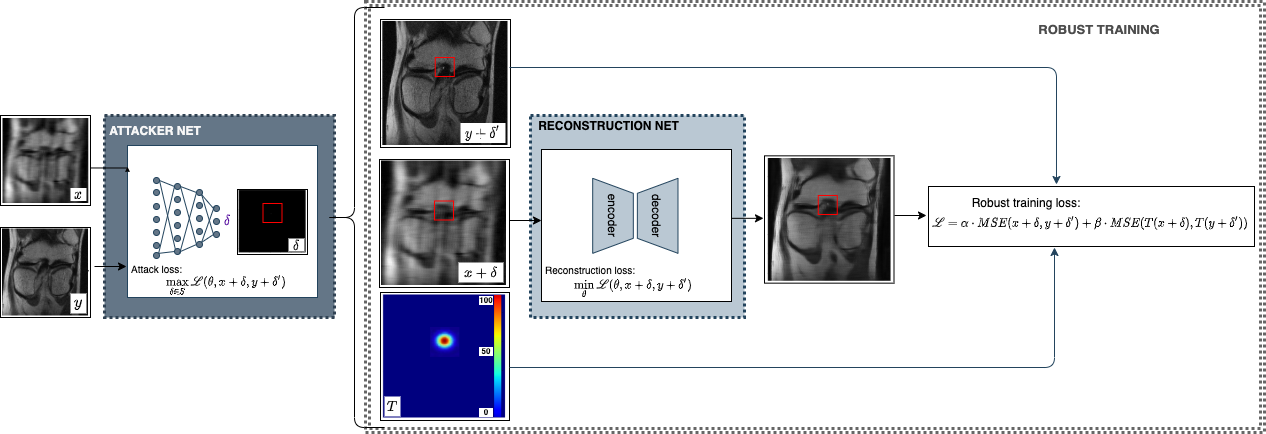Adversarial Robust Training of Deep Learning MRI Reconstruction Models
Deep Learning (DL) has shown potential in accelerating Magnetic Resonance Image acquisition and reconstruction. Nevertheless, there is a dearth of tailored methods to guarantee that the reconstruction of small features is achieved with high fidelity. In this work, we employ adversarial attacks to generate small synthetic perturbations, which are difficult to reconstruct for a trained DL reconstruction network. Then, we use robust training to increase the network's sensitivity to these small features and encourage their reconstruction. Next, we investigate the generalization of said approach to real world features. For this, a musculoskeletal radiologist annotated a set of cartilage and meniscal lesions from the knee Fast-MRI dataset, and a classification network was devised to assess the reconstruction of the features. Experimental results show that by introducing robust training to a reconstruction network, the rate of false negative features (4.8\%) in image reconstruction can be reduced. These results are encouraging, and highlight the necessity for attention to this problem by the image reconstruction community, as a milestone for the introduction of DL reconstruction in clinical practice. To support further research, we make our annotations and code publicly available at https://github.com/fcaliva/fastMRI_BB_abnormalities_annotation.
PDF Abstract



 fastMRI
fastMRI